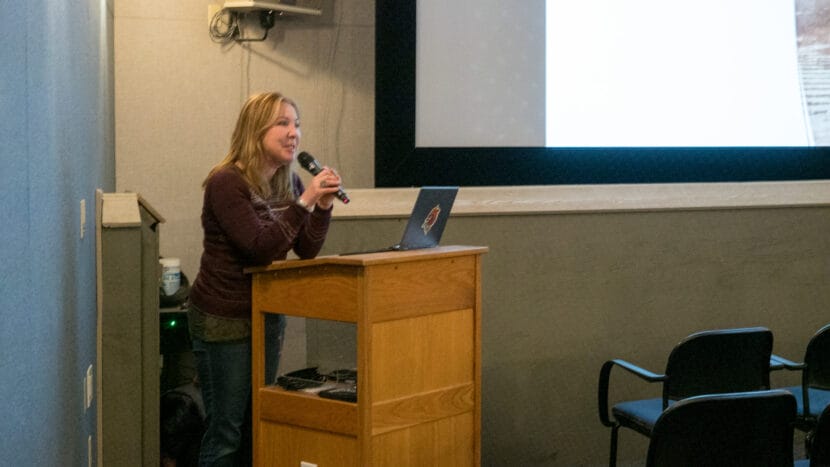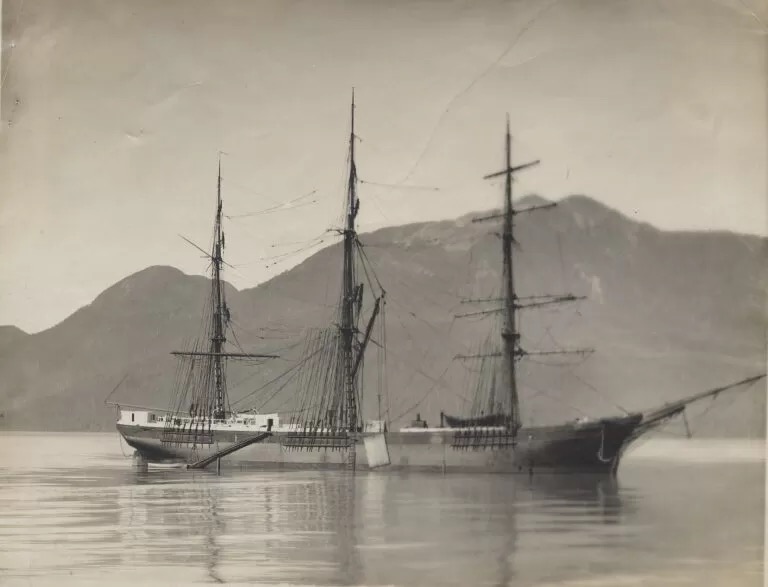Clik here to view.

This is Tongass Voices, a series from KTOO sharing weekly perspectives from the homelands of the Áak’w Kwáan and beyond.
A team of researchers in Alaska have banded together to investigate a famous Alaska shipwreck. The Star of Bengal sank off the coast of Prince of Wales Island in 1908, taking more than 100 lives with it. The shipwreck highlighted stark racial inequality in Alaska at the time since most of those who died were Asian cannery workers.
Members of a 2022 expedition to the site of the wreck are going back in May. In this episode of Tongass Voices, team members Gig Decker and Jenya Anichtchenko share what they hope to uncover.
Listen:
This transcript has been lightly edited for clarity.
Gig Decker: I’m Gig Decker, 50 year old — I mean, 50 year commercial fisherman from Wrangell, Alaska. And I was a commercial harvest diver for 38 years. And I became interested in shipwrecks 30 years ago, mainly because you run into a lot of that sort of thing when you’re commercial harvest diving. And I became interested in the Star of Bengal because I see it as a really important aspect of the fishing and processing industry. And I’ve always been really interested in seeing the story of the Bengal lifted to a point to where I think it deserves in the history of Alaska and coastal communities.
Jenya Anichtchenko : My name is Jenya Anichtchenko. I am a maritime archeologist. I came to Alaska in 2004 for the first time chasing a Russian shipwreck, and ever since I stayed in the state. I’ve done a lot of things professionally, but shipwrecks and maritime archeology remain my passion. I am originally from St Petersburg, Russia, and I am now proud to say I’m an Alaskan, for the last 20 years.
It’s kind of a mystery, maybe not so much, but in details it is. We know that out of 36 crew members of the Star of Bengal, about 17 died. And we know that of 106 cannery workers of Chinese, Filipino, Japanese origin, only 10 survived. It’s a huge racial disproportion of lives lost. And we’re hoping to be able to find out what really happened.
Clik here to view.

Gig Decker: A lot of people don’t realize the tremendous involvement that Asian people have had in the development of the fishing and processing industry in the Northwest, and particularly in Alaska. They were the predominant labor force, and there’s a fairly clear history of mistreatment of Asians, particularly of the Chinese — taking advantage of them, cheating them and not giving them the health care and that sort of a thing they need.
So there’s been a long history of this, from Sacramento all the way up to the West Coast through to Alaska, not just in processing and fishing, but in timber and mining and road building.
And I’ve always felt that the Star of Bengal was a marker for this whole thing. I think that what happened that night reflects the way that the Chinese and Asians were treated in the industry, and I think it’s an important hallmark for the history of Alaska that should stand out a lot more.
Jenya Anichtchenko: I’ve been engaged in several archeological maritime shipwreck studies, and most of the time they originate from academia. This one, at least to me, came as a community wish, a community desire. It’s very important for me to know that this is a community project, and we’re trying to run it as such.
Another thing I want to mention is it’s an immigrant story for me, and it definitely pulls on my immigrant heart. The immigrant population is vulnerable. Chinese and other Asian workers on the Star of Bengal, they were not welcome to this country at all. They had to work really hard, take jobs that nobody else would take, work for virtually nothing and risk their lives to eventually feel at home in this country. And it’s a really important aspect for me, and I think it’s an important thing for all of us to remember, especially today, what immigrant story in this country really is like.
Gig Decker: It is really important because the record needs to be set straight about what happened that night. And anything that we can bring to light out there, I think it’s going to be really important.